Cross-Platform Mobile App Development Services
A proven cross-platform mobile app development team of experienced Flutter and React Native experts ensures faster delivery from a single codebase, a native-like UX, and measurable ROI.

Business First
Code Next
Let’s talk
- Cross-platform app development
- UI/UX design
- App migration
- Flutter app development
- Cloud integration
- Xamarin app development
- Progressive web apps (PWA)
- Native script app development
Technologies we use
Hire a cross platform mobile application development company with experience in using a broad range of technologies to build mobile apps. Pick the best-fitting tech stack for your business needs and challenges.

Flutter

React Native

Xamarin

Native Script

Progressive Web App
Proven cross-platform solutions
Check out the real-world CodeIT’s multi-platform app development and implementation cases. Our experts develop solutions that are perfectly tailored to the specific needs of our clients and their businesses.
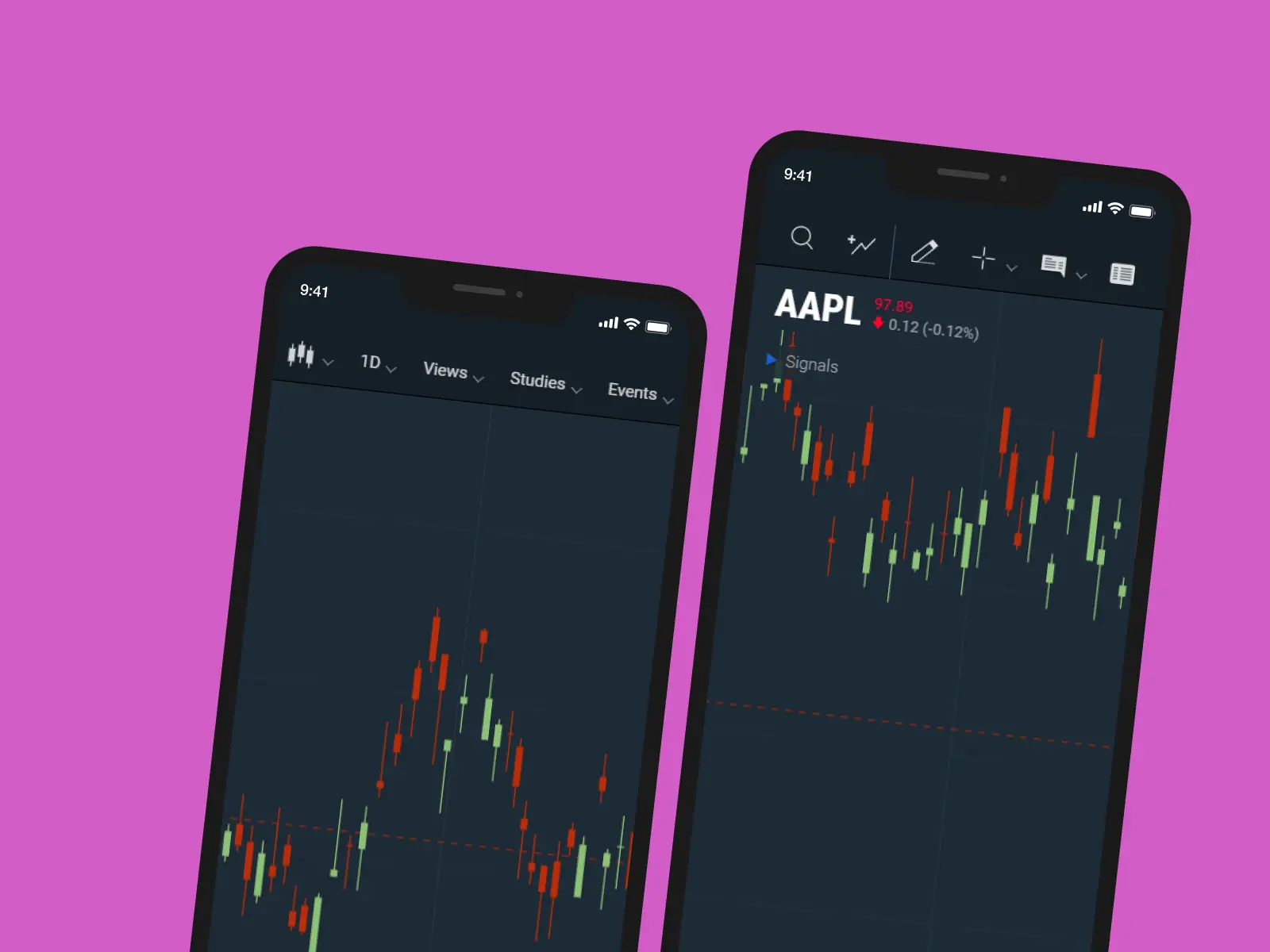
Data visualization and charting app
A cross-platform app with real-time access to trading data and tools.
- Multi-platform support
- Unified codebase with re-engineered JS bridge and SDK
- Native components
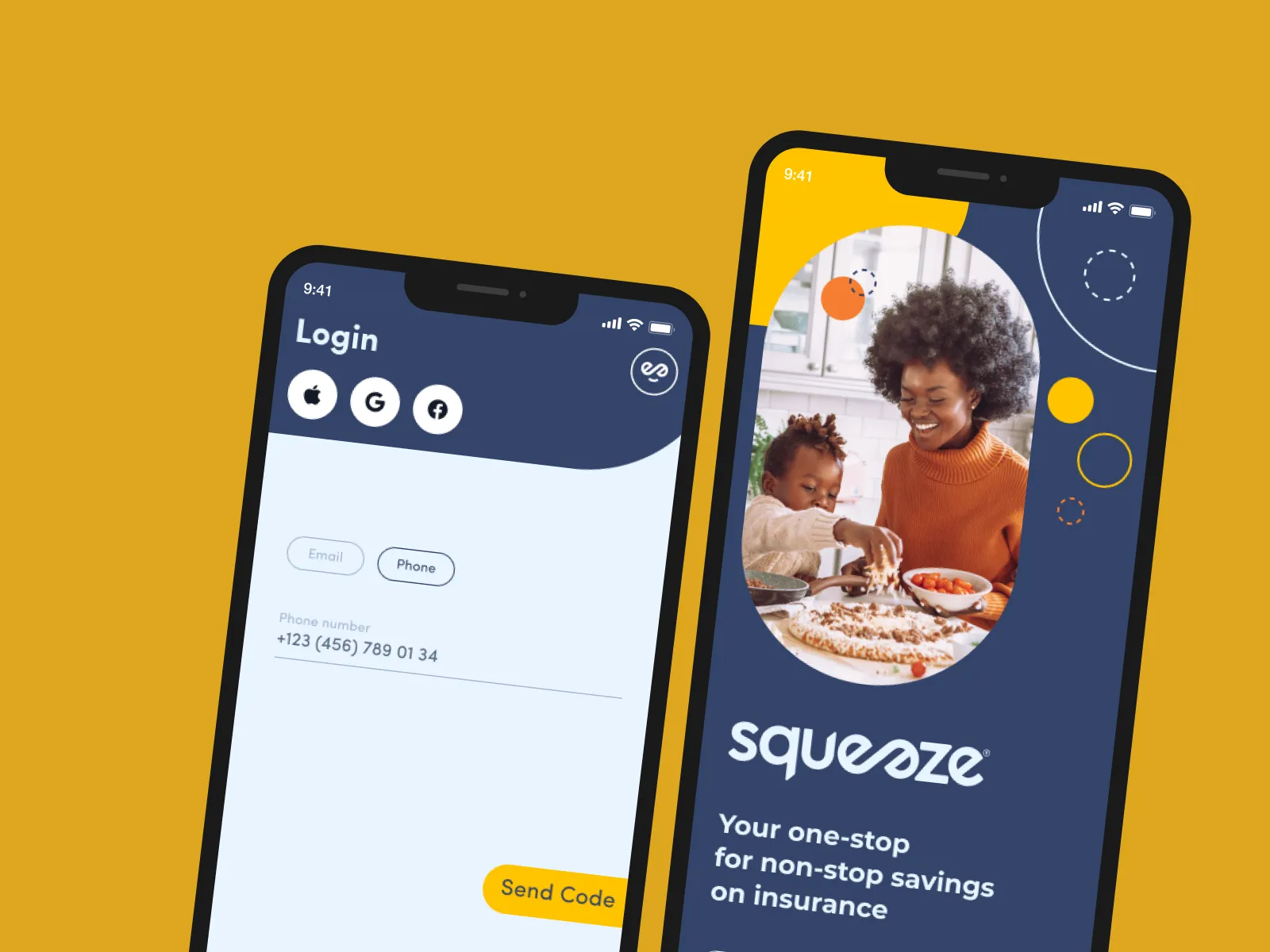
Squeeze
An app identifies user needs and finds the best-matching insurance offers.
- Flutter app development
- Easy registration and sign-in
- Personal data auto-filling
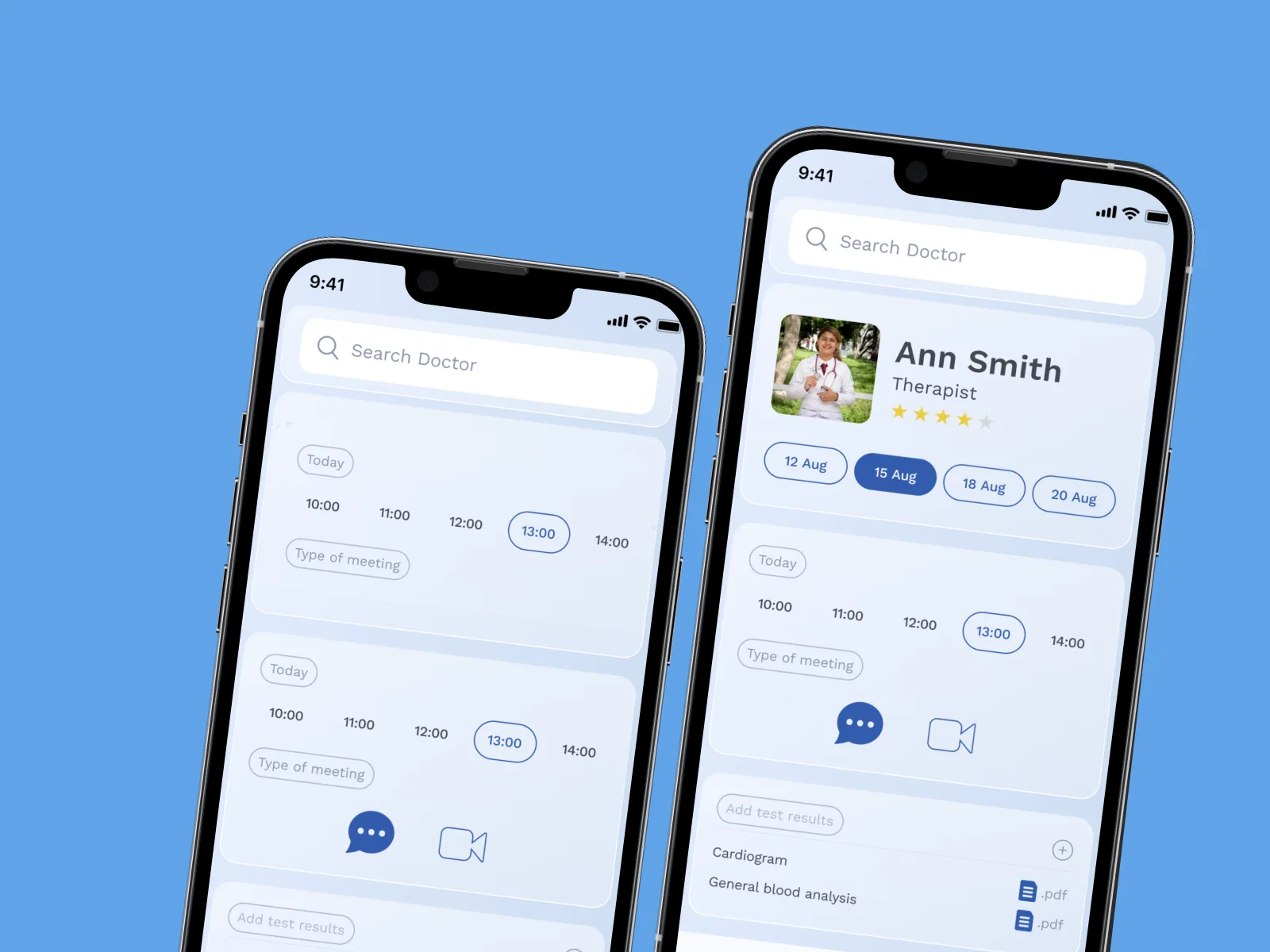
Telemedicine and doctor appointment app
A cross-platform application that facilitates doctor-patient interactions.
- Cross-platform mobile application
- In-app chat, audio, and video calls
- Doctor search and appointment scheduling
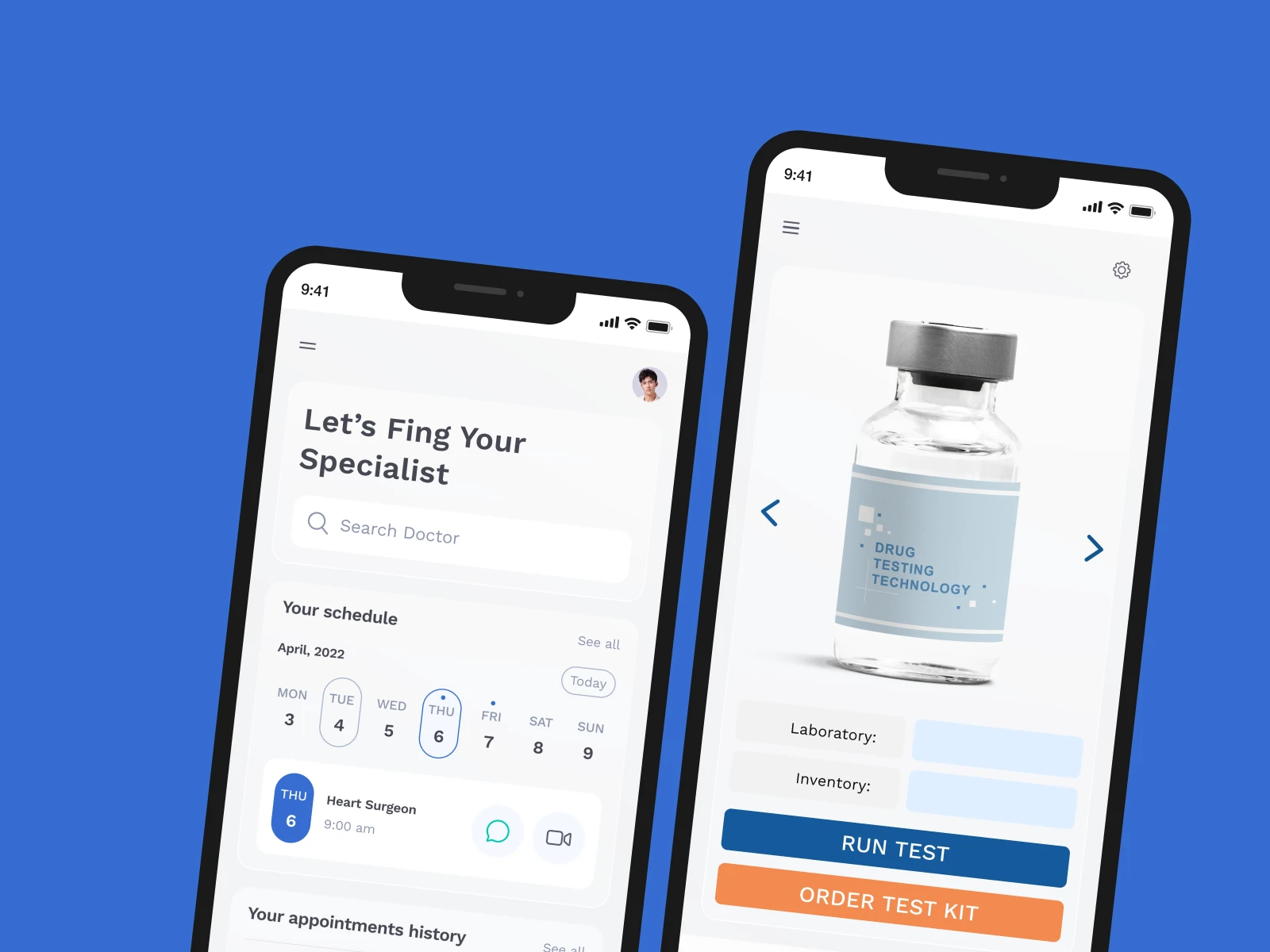
Solution for online medical laboratory
An app for taking photos of medical test samples and sending them to labs.
- Medical analysis submission
- HIPAA/CCPA and GDPR-compliant
- Integration with labs

and over of software development costs can be saved with the cross-platform approach.
Build iOS and Android apps using a single codebase

Business First
Code Next
Let’s talk
How we build cross-platform applications
Discover the steps of building a multi-platform and CodeIT team’s activities at each stage.
First call
Engage with our team to initiate collaboration, where we will discuss your business goals, project scope, and technical needs.
- Schedule a one-to-one meeting with our expert in 24 hours
- Sign a non-discourse arrangement (NDA)
- Share your business vision, project details, and technical requirements
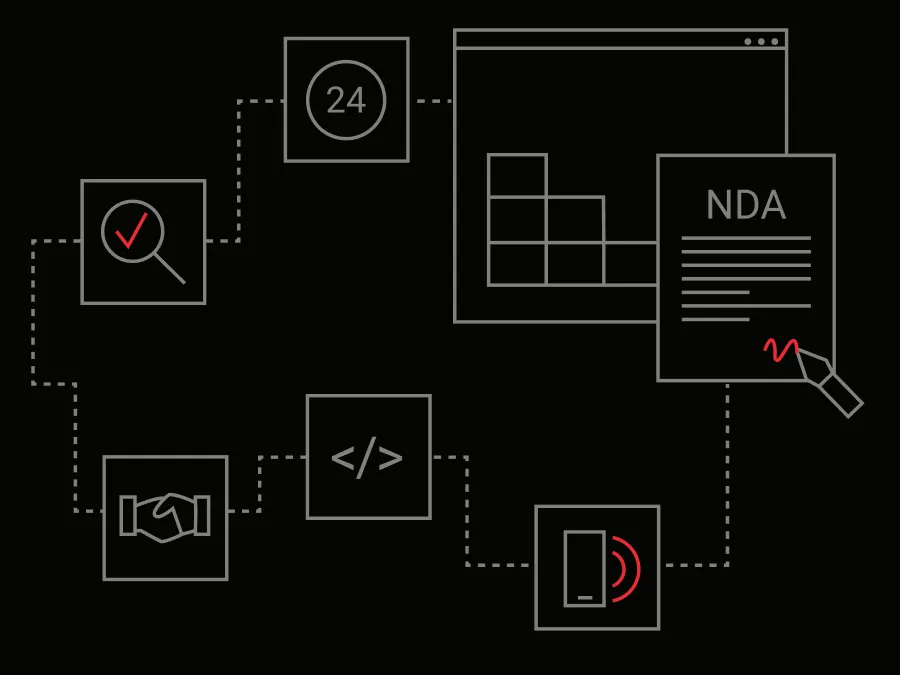
Analysis and planning
Our specialists assess the project requirements and determine the most suitable technology solutions. We define the overall structure and prioritize tasks and features for development.
- Technical requirements assessment
- Cross-platform technologies selection
- Definition of done (DoD) description
- Key performance indicators (KPIs) definition
- Tasks backlog creation
- User roles definition
- Communication schedule creation

Design
We design a user-friendly interface that aligns with the project’s objectives and brand identity, ensuring the design meets expectations and refining it as needed.
- Project requirements analysis
- Wireframes creation
- User interface creation
- Validation and change request processing

Iterative development
The CodeIT team implements the core features using an iterative approach, ensuring robust functionality across multiple platforms and thorough quality assurance.
- Sprint planning and implementation
- Minimum viable product (MVP) development
- New feature development
- Code review and increment testing
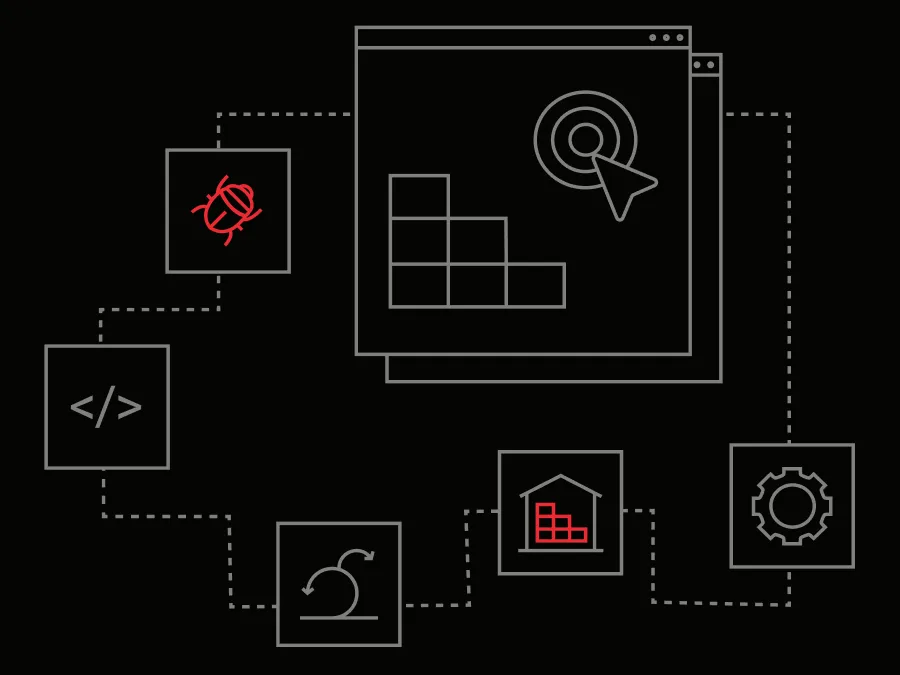
App deployment
We prepare the app for launch, ensuring smooth deployment and distribution across relevant platforms and stores.
- Live server configuration
- Minimum viable product (MVP) deployment
- New features release
- App submission to App Store and Google Play markets
- Technical documentation creation
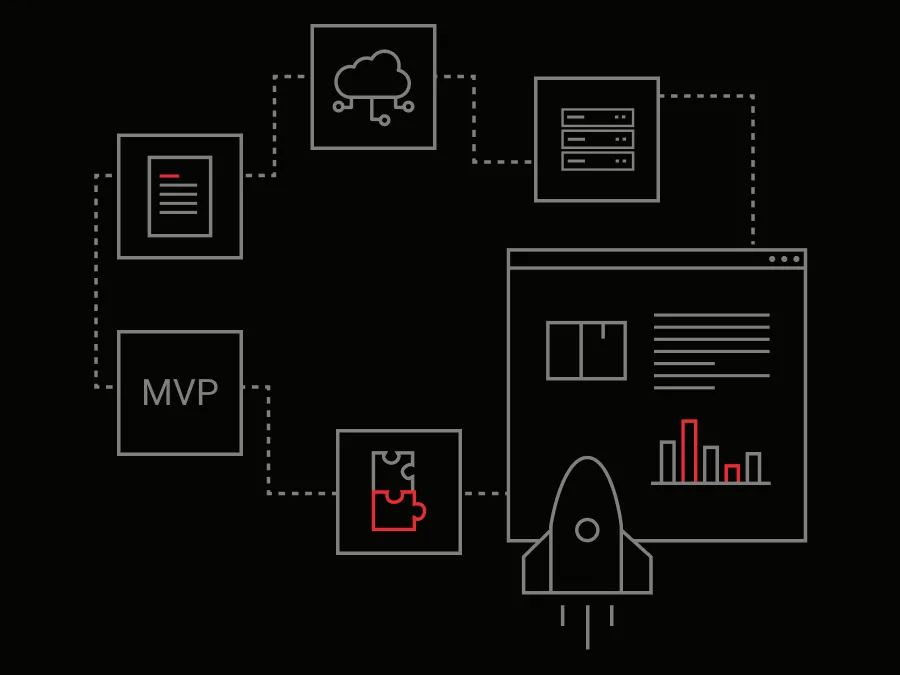
Maintenance
Receive continuous support and address any issues that arise after launch, ensuring smooth operation and necessary adjustments.
- Unforeseen issue troubleshooting
- Change request processing
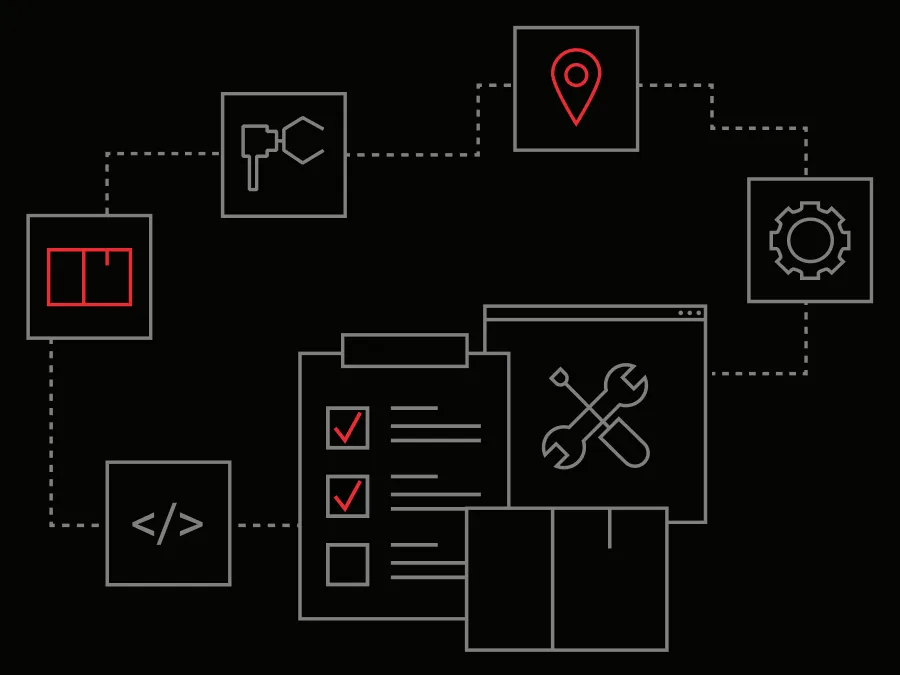
Key characteristics of cross-platform app development
Don’t compromise on quality with multi-platform mobile app development.

Single codebase
Up to 80% of the code can be reused for developing applications supported by different platforms. Nevertheless, native code can be added separately to enable OS-specific feature support.
- One codebase works across multiple platforms
- Bug fixes and updates are applied once for all platforms
- Only one programming language should be learned
- Rapid development of prototypes and minimum viable products (MVPs)

Offline access
Cross-platform applications can be submitted to the AppStore and Google Play markets. They can be installed on users’ smartphones and used offline as distinctive apps.
- Users have access to important features offline
- Offline data can be synchronized automatically once the internet connection is restored
- Users can perform certain tasks offline
- Users don’t lose functionality when internet service is interrupted

UI/UX consistency
Maintaining brand identity and familiarity for users regardless of the device or operating system, keeping your app compliant with OS-specific UI/UX requirements.
- Users can easily switch between devices without having to adapt
- Consistent navigation and interactions, regardless of the platform
- New features can be rolled out with the same design
- Different native UI components can be added to comply with the requirements
Our cross-platform mobile app development services
Hire an experienced multi-platform application development company. We are ready to take on your project at any stage and offer a wide variety of services for startups and established businesses.
During Discovery, we map your goals and requirements to the right cross-platform application development service and define scope, milestones, and risk controls before build.
Develop a high-performance cross-platform application that uses a single codebase. Deliver consistent functionality on both iOS and Android devices. Facilitate software development by using pre-built components and widgets offered by frameworks.
Ensure release quality with a clear QA process: functional, usability, performance, and security testing across iOS and Android device matrices. We align test cases with your requirements, run automated and manual suites, and deliver actionable defect reports.
Connect your app with the systems you already use: payments, analytics, CRM/ERP, and third-party APIs. We design secure data flows, set up SSO and push, and integrate hybrid apps or a web-based solution using the right framework.
Hire CodeIT to analyze project requirements and create a tailor-made user interface/user experience (UI/UX) design. Consider the preferences of your target audience when creating a well-thought-out interface.
Re-engineer your existing application, making it available on both iOS and Android platforms. Ensure a smooth migration process, preserving data integrity and functionality while optimizing your app for its new environment.
Keep your product healthy after launch with proactive monitoring, bug fixes, and performance tuning. We handle OS and framework updates (iOS, Android, Flutter), security patches, feature refinements, and scheduled releases under an agreed SLA.
Cross-platform app development benefits
Opt for cross-platform mobile app development to rapidly create new applications, saving the overall project costs. The foremost benefits of developing multi-platform apps are as follows.
Faster time-to-market
Choose a simplified development process, a large number of ready-made solutions, and the ability to create a product for all devices at once. Cross-platform app developers will help you to achieve faster time to market.
Low costs
Achieve reduced app development cost by using a single codebase that will work for all platforms and devices. There is no need to hire separate teams of software engineers to develop apps for different operating systems.
Wider audience reach
Convey your product to a wider target audience, regardless of which device or operating system they use. Make the same functionality available on various platforms, matching the UI/UX requirements of each operating system.
Reusable code
Apply the multi-platform development using the same code for all versions of the product, making minor changes. This allows you to reuse a single code for different systems, quickly fix bugs, and change entire blocks and modules on all platforms without serious delays.
Simplified maintenance
Easily maintain the operation of a single codebase is simplified and can be carried out by one cross-platform development specialist. Moreover, release updates, fix bug, and improve functionality in a more efficient and less time-consuming manner.
Enhanced cloud integration
Enable the unification of all versions of the application under one technology and programming language, interaction with cloud technologies. This improves app functionality and scalability, making it easier to manage resources and collaborate.
One app on many devices
Make sure your application has the same functionality, UI, and UX on all devices and platforms. This significantly increases user engagement as they don’t have to get used to the new interface when using your app on another device.
Faster market analysis and test
Eliminate the need to analyze different markets and test the product multiple times. Gather feedback and analyze market response, adjusting strategies and making data-driven decisions more rapidly.
Quick prototyping
Rapidly create different prototypes for various platforms and systems, allowing developers to quickly test app models on multiple platforms. This speeds up the validation of concepts and helps fine-tune features before full-scale development.
Begin cross-platform mobile app development?

Business First
Code Next
Let’s talk
When to choose cross-platform app development
With cross-platform app development services, you get faster time-to-market, native-like features, reliable integration, and post-launch support and maintenance for iOS and Android.
Opt for multi-platform app development when you need to reach a wide audience on both iOS and Android platforms, delivering the same functionality to both iOS and Android devices.
Rapidly develop a single app and release it on different platforms. Create and deploy features and fix bugs by updating a single codebase. Employ and manage one team, saving your budget.
Ensure your long-term business development plans don’t include the development of a large number of new and complex features in the future. The architecture of your app will remain unchanged, and only minor features and tweaks will be implemented.
Quickly validate your idea and collect feedback by creating a prototype using pre-built components and widgets offered by multi-platform app development frameworks and using a single codebase.
Choose the multi-platform app development approach as it is perfect for businesses that don’t plan to incorporate complex features that use OS-specific components and require access to device-specific hardware.
Pick cross-platform development if you already have a corporate website or desktop app with the functionality that needs to be developed in mobile apps. Its codebase can be used as a foundation for developing new mobile applications.
Expertise Across Diverse Industries
Healthcare
HIPAA-ready custom e-health solutions, apps, integrations, analytics focused on care quality and operational efficiency.
FinTech
Process automation and data-driven services aligned to your business goals.
E-learning
E-commerce
Custom web & mobile solutions to boost conversion and streamline operations
Logistics & Transportation
Tracking, IoT, AI analytics, and integrations for end-to-end supply chains
Manufacturing
MES/ERP integrations, IIoT/analytics, and software to improve production efficiency
Real Estate & PropTech
Portals, CRM/ERP, integrations, and workflow optimization
Collaborative options available at CodeIT
Choose a collaboration model that perfectly matches your business processes. Easily extend your in-house team or delegate cross-platform mobile app development to CodeIT.

Staff augmentation
Streamline your cross-platform development with top-tier software engineers and industry-leading practices.
CodeIT can create a team dedicated to delivering custom multi-platform solutions.
- Seamless onboarding
- Aligned technical expertise
- Adaptable team structure

Full-scale development
Hire CodeIT to manage every step of multi-platform app development, from concept to launch.
Receive a custom cross-platform app tailored to your business needs.
- Cross-platform expertise
- Business-centric solutions
- Involvement and control
FAQ
Multi-platform development involves the creation of a product for various platforms and devices, be it a mobile system or web. It also means creating a single version of the product that will work for all platforms.
It is impossible to answer this question since all frameworks are extremely versatile and are used for specific tasks. However, the two most popular ones among the developers are React Native and Flutter.
Multi-platform development allows you to significantly reduce costs, release your product to all major platforms and devices at once, and gain the attention of the widest possible audience.
Our company has a large number of specialists, which allows us to say with confidence that we can provide ways of implementation for absolutely any idea. You can read more about why you need to choose us just above.
Cost depends on your requirements: the feature set, design depth, third-party integrations, security/compliance needs, and the level of ongoing support & maintenance. After a short Discovery, we propose options (e.g., PoC, MVP, full product) with a clear scope, team composition, and assumptions so you can choose what fits your budget and goals.
Timelines vary with scope and complexity—number of features and screens, integration readiness, approval cycles, and content/assets availability. Our process is staged, and using a shared framework (e.g., Flutter or React Native) helps keep iOS and Android in parity. If you have a fixed deadline, we tailor scope and sequencing to meet it.
Yes. We routinely integrate camera and media, push notifications, biometrics, maps/GPS, secure storage, payments, and other platform APIs. When a plugin doesn’t fully cover your use case, we build custom native modules (Swift/Kotlin) and bridge them into the cross-platform framework. For performance-critical parts, we combine cross-platform UI with targeted native code to maintain a smooth user experience on both iOS and Android.






